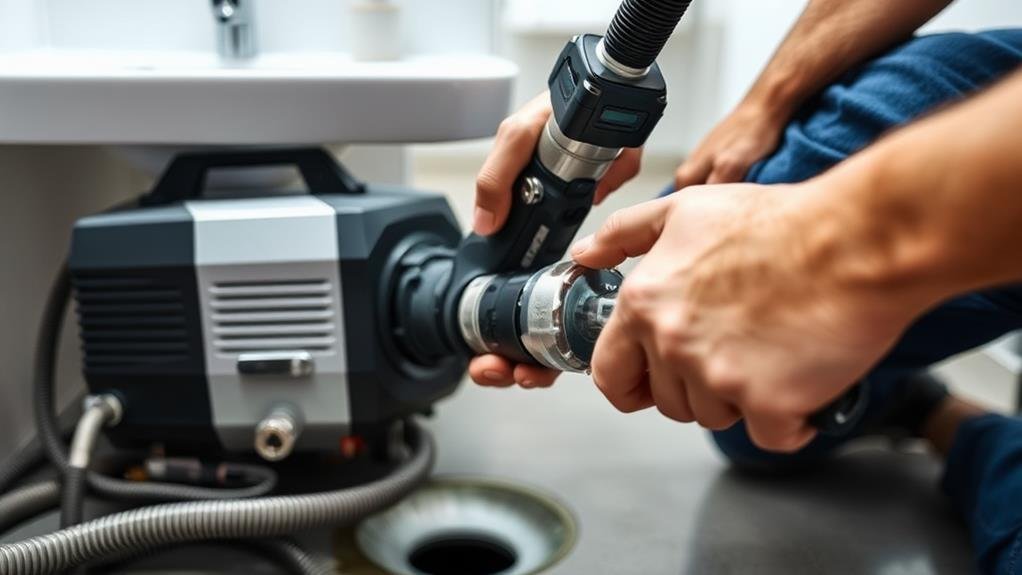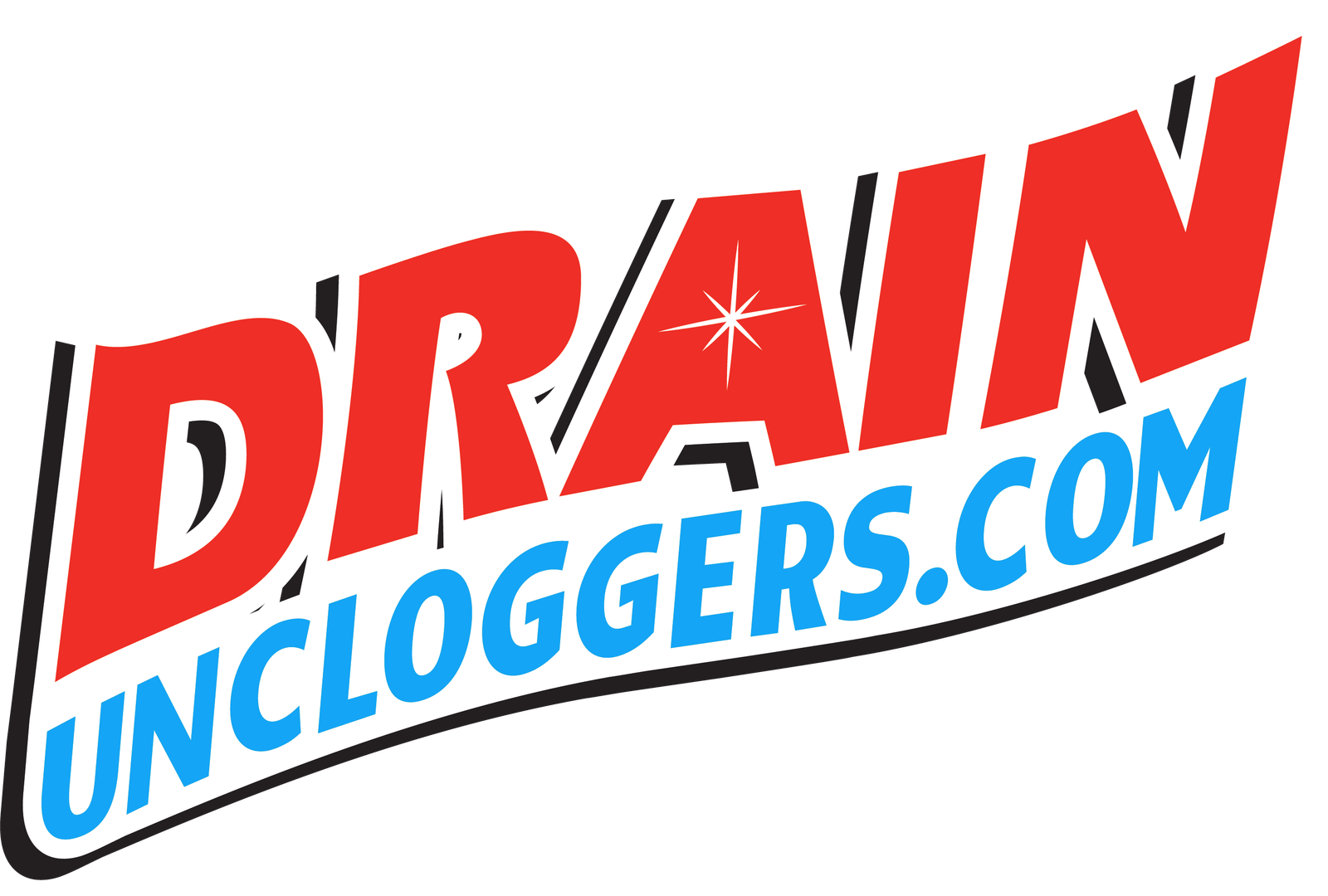When you think about maintaining your home, drain cleaning might not be the first thing that comes to mind, but it's crucial for a well-functioning plumbing system. You might notice slow drains or unpleasant odors, which are common signs that your system needs attention. Ignoring these issues can lead to more severe problems and costly repairs down the line. So, what exactly should you expect from a drain cleaning service in Closter, NJ, and how can you choose the right provider for your needs? Let's explore this further.
Importance of Drain Cleaning
When it comes to home maintenance, ignoring your drains can lead to costly problems down the line. Keeping your drains clean is essential for maintaining drain health and preventing clogs that could disrupt your daily life.
Many homeowners fall for plumbing myths, believing that a little buildup is harmless or that chemical cleaners can solve all issues. However, this mindset can result in more significant problems, such as leaks or even structural damage to your home.
Regular drain cleaning helps remove debris and buildup that can lead to slow drainage and unpleasant odors. By investing time and resources in this task, you can avoid the hassle of emergency plumbing services.
It's better to be proactive than reactive; a simple cleaning can save you from unexpected expenses.
Moreover, maintaining clean drains contributes to a healthier living environment. It reduces the risk of mold and bacteria growth, which can harm your family's well-being.
Common Causes of Clogs
Clogs can happen to anyone, and understanding their common causes can help you prevent them. One of the primary culprits in kitchen sinks is food debris. When you wash dishes, small bits of food can accumulate and create blockages. Grease and oil can also solidify in your pipes, leading to stubborn clogs.
In bathroom drains, hair is often the main issue. Whether it's from brushing your hair or showering, strands can easily get trapped and form a tangled mess. Products like soap, shampoo, and conditioner can combine with hair, creating a thick sludge that clogs your pipes.
Another common cause is the buildup of mineral deposits, especially in areas with hard water. Over time, these deposits can narrow your pipes and restrict water flow.
Additionally, flushing inappropriate items down the toilet, like wipes or feminine products, can lead to severe clogs in both bathroom drains and sewer lines.
Signs You Need Service
How can you tell if it's time to call a drain cleaning service? Pay attention to the signs that indicate your drains need professional help.
One of the most common indicators is slow drains. If you notice water pooling in your sink or bathtub longer than usual, it's a clear signal that something's wrong. Don't ignore it; the problem could worsen and lead to more significant issues.
Another sign to watch for is foul odors coming from your drains. If you catch whiffs of unpleasant smells, it might be a sign of trapped debris or stagnant water. These odors often indicate a blockage that requires immediate attention.
Additionally, if you experience frequent backups or gurgling noises when you flush your toilet or run the sink, it's time to take action. These issues can escalate quickly, leading to more costly repairs down the line.
Benefits of Professional Help
Addressing drain issues promptly can save you from more severe problems down the line, and hiring a professional for drain cleaning offers several advantages.
First, you'll benefit from cost savings. While you might think tackling the issue yourself is more affordable, DIY methods can lead to further damage if not done correctly. A professional can identify the root cause of the problem, preventing costly repairs later.
Moreover, time efficiency plays a crucial role. You probably have a busy schedule, and spending hours trying to unclog a drain can be frustrating and unproductive.
Professionals have the tools and expertise to get the job done quickly, allowing you to focus on more important tasks.
Additionally, they can provide a thorough inspection and maintenance suggestions to keep your drains functioning smoothly. This proactive approach not only saves you money but also reduces the likelihood of future issues.
In the end, hiring a professional for drain cleaning isn't just an expense; it's an investment in your home's plumbing system that can lead to long-term benefits.
Don't hesitate—seek professional help to ensure your drains remain in top shape.
Typical Drain Cleaning Methods
When it comes to drain cleaning, there are several typical methods that professionals use to tackle stubborn clogs effectively.
One of the most popular techniques is snaking. This method involves using a flexible auger, or snake, that can navigate through your pipes to break up blockages. You'll find that snaking is particularly useful for clogs caused by hair, grease, or small objects lodged in your drains.
Another effective method is hydro jetting. This technique uses high-pressure water jets to clear away debris and buildup in your pipes. Hydro jetting is particularly beneficial for more severe blockages or when you want to thoroughly clean your pipes. The force of the water can remove even the toughest materials, ensuring that your drainage system runs smoothly.
Choosing between these methods often depends on the severity of the clog and the condition of your pipes.
Both snaking and hydro jetting have their advantages, and a professional will know which method is best suited for your specific situation. By understanding these typical drain cleaning methods, you can make informed decisions when it comes to maintaining your plumbing.
What to Expect During Service
During a drain cleaning service, you'll find that professionals come prepared with the right tools and techniques to tackle your specific plumbing issues.
They'll start with thorough drain inspection techniques to identify blockages or damage. This initial assessment helps them determine the best course of action for resolving your issue effectively.
Once they've diagnosed the problem, they'll employ specialized tools like high-pressure water jets or snakes to clear clogs.
If your situation is urgent, many providers offer emergency services, ensuring you get quick relief from overflowing or slow drains. You can expect the technicians to communicate openly, explaining their process and any findings during the inspection.
After the job is complete, they'll clean the work area and may provide tips on maintaining your drains to prevent future issues.
It's essential to ask questions if you have any concerns—you're paying for their expertise, after all.
Choosing the Right Service Provider
Finding the right drain cleaning service provider can significantly impact the effectiveness of your plumbing repairs. You want a company that's not only qualified but also has a solid reputation.
Start by checking their service qualifications. Look for licenses, insurance, and certifications that demonstrate their expertise.
Next, dive into customer reviews. These reviews provide insight into the experiences of others who've used their services. Pay attention to recurring themes—positive feedback about promptness, thoroughness, and professionalism can indicate a reliable provider. If you notice consistent negative comments, it's a red flag.
Don't hesitate to ask potential providers about their experience with specific drain issues you're facing. A knowledgeable technician can offer tailored solutions and give you confidence in their capabilities.
Also, consider the range of services they offer. A comprehensive company can address not just immediate problems but also any future concerns that may arise.
Preventative Maintenance Tips
Preventative maintenance is key to keeping your drains in top shape and avoiding costly repairs down the line. By focusing on your drain health, you can extend the life of your plumbing system and prevent clogs and backups.
Start by regularly inspecting your drains for any signs of trouble, like slow drainage or unpleasant odors.
You can also practice simple DIY maintenance at home. Pouring a mixture of baking soda and vinegar down your drains once a month can help break down buildup and keep things flowing smoothly. Be sure to flush the mixture with hot water afterward to clear any remaining residue.
Another tip is to avoid putting grease, coffee grounds, or large food scraps down your kitchen sink. Instead, use a strainer to catch debris and dispose of it in the trash.
In the bathroom, ensure hair and soap scum don't accumulate by using drain screens and cleaning them out regularly.


